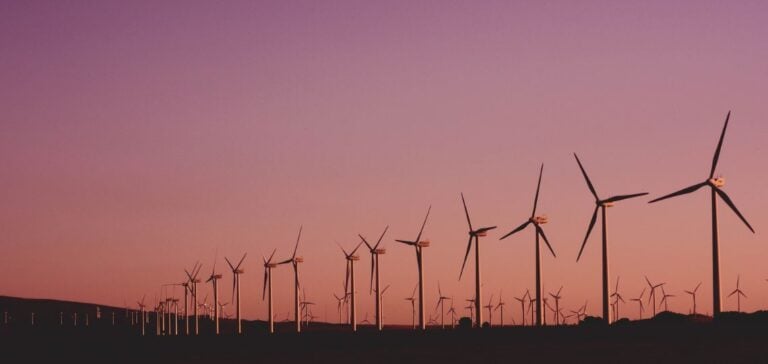China has installed almost 350 gigawatts (GW) of new renewable capacity by 2023, more than half of the global total, according to a new report by theInternational Energy Agency (IEA). If it maintains this pace, China will probably exceed its 2030 target as early as this year. However, if climate targets are to be met, other Asian countries will need to accelerate the deployment of renewable energies.
China, Asia’s undisputed leader in renewable energies
China’s official target is to have 1,200GW of installed wind and solar capacity by 2030. But by April of this year, it had already reached 1,130GW. According to the IEA, modeling based on China’s decarbonization ambitions yields an “estimated ambition trajectory for 2030” of over 3,000GW of renewables, including hydropower. This represents a doubling of current installed capacity and means that China will remain a leader in the deployment of renewables.
Growth opportunities for other Asian countries
But the IEA stresses that the main opportunities lie elsewhere in Asia, especially as many countries in the region are in the early stages of their transition to renewable energies. Outside China, the Asia-Pacific region is forecasting nearly 1,200GW of renewables by 2030, roughly double current levels. India leads the way with 500GW of non-fossil fuel capacity planned by 2030, the majority of which is solar 293GW and wind 100GW. The countries of the Association of Southeast Asian Nations (ASEAN) have ambitions for 225GW of new renewable energies by 2030, led by Vietnam with 84GW, Indonesia with 44GW and the Philippines with 30GW.
Potential still largely untapped in many countries
However, the IEA report shows that there is considerable scope for more aggressive deployment of renewables, given that the share of variable renewables in total electricity generation remains below 10% in 15 of the 18 Asia-Pacific countries analyzed.
Low-cost photovoltaics and wind power can rapidly deliver numerous economic benefits by reducing the overall cost of electricity supply, cutting dependence on imported fuels and reducing greenhouse gas emissions. Nevertheless, despite these advantages, 12 of the 15 countries with a low share of variable renewables plan to increase their renewable capacity by a factor of less than three by 2030, and seven countries by a factor of less than two, leaving significant untapped potential.
Part of the problem is that many Asian countries have an overcapacity of fossil fuel power plants, some of which were built recently, meaning that they will have to run for many years to pay back the capital invested. For renewables to claim a greater share of electricity generation in Asia, it is likely that some form of government intervention and policy changes will be required to facilitate the exit of fossil fuel power plants from the energy mix.
Establishing the right policy framework is one of the main challenges in many Asian countries, as governments tend to prioritize energy security, availability and cost over the amount of carbon emissions. Moving coal is also extremely difficult, especially when just three Asian countries – China, India and Indonesia – are responsible for almost 75% of the world’s total coal burned. Huge domestic coal reserves, large populations and ambitious economic growth targets are also common to these three Asian countries, factors which make coal replacement even more difficult.
China has clearly taken the lead in the deployment of renewable energies in Asia. But other countries in the region will have to step up their efforts if they are to achieve their climate targets. Although there is enormous potential, major challenges remain, particularly in terms of energy policy and dependence on coal. Overcoming these obstacles will be key to enabling a faster transition to clean energy in Asia.






















